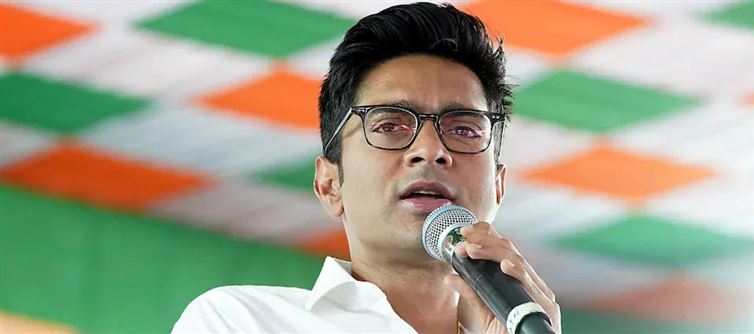
Abhishek Banerjee's recent actions exemplify what it truly means to be a responsible and fearless politician. While representing india abroad, he didn’t fall into the trap of petty politics or indulge in self-promotion. Instead, he used his platform to highlight Pakistan’s role in sponsoring terrorism and destabilizing the region—something that resonates with every indian, regardless of political affiliation. His stance projected a united front on matters of national interest, proving that patriotism doesn’t belong to one party and that national security should always rise above domestic politics.
Now back on indian soil, Banerjee has switched gears to hold the ruling bjp and prime minister Narendra Modi's government accountable for their policies, decisions, and handling of key issues. Whether it’s unemployment, inflation, crony capitalism, or institutional weakening, Banerjee has been unafraid to ask tough questions in parliament and on the streets. He refuses to be cowed by ED raids or cbi scrutiny, which many believe are politically motivated. This ability to separate national duty from political responsibility shows maturity, conviction, and, most importantly, courage—a rare quality in today’s often compromised political climate.
Abhishek Banerjee’s conduct sets a strong example for opposition leaders across the country. In an age when many politicians either buckle under pressure or engage in endless theatrics, he has managed to strike a balance between statesmanship and activism. By standing up for india abroad and standing up to the government at home, he is showing that opposition doesn’t mean obstruction—it means accountability. If more opposition MPs displayed such clarity, purpose, and grit, indian democracy would only be stronger and more resilient.
Now back on indian soil, Banerjee has switched gears to hold the ruling bjp and prime minister Narendra Modi's government accountable for their policies, decisions, and handling of key issues. Whether it’s unemployment, inflation, crony capitalism, or institutional weakening, Banerjee has been unafraid to ask tough questions in parliament and on the streets. He refuses to be cowed by ED raids or cbi scrutiny, which many believe are politically motivated. This ability to separate national duty from political responsibility shows maturity, conviction, and, most importantly, courage—a rare quality in today’s often compromised political climate.
Abhishek Banerjee’s conduct sets a strong example for opposition leaders across the country. In an age when many politicians either buckle under pressure or engage in endless theatrics, he has managed to strike a balance between statesmanship and activism. By standing up for india abroad and standing up to the government at home, he is showing that opposition doesn’t mean obstruction—it means accountability. If more opposition MPs displayed such clarity, purpose, and grit, indian democracy would only be stronger and more resilient.




 click and follow Indiaherald WhatsApp channel
click and follow Indiaherald WhatsApp channel